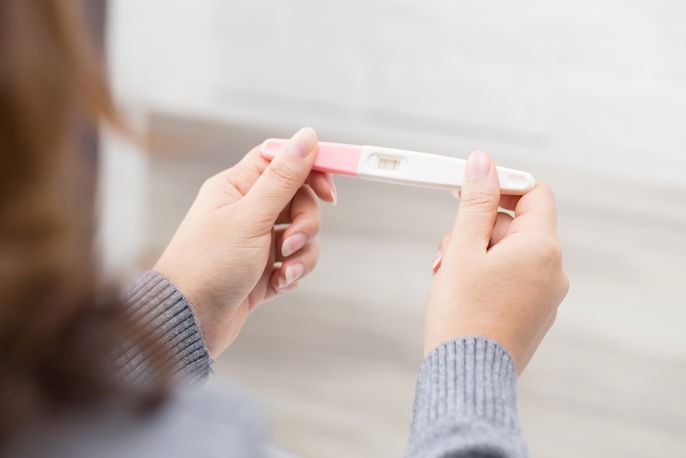It is possible to get pregnant without having sex, but the likelihood of pregnancy is very low. Without penetration, only small quantities of sperm is able enter into the vaginal canal, which will make egg fertilization very difficult.
For pregnancy to occur without having sex, ejaculation must take place near the vagina and contraceptive methods must not be used. There needs to be a chance for the sperm to enter the vagina and there must be sufficient quantity of viable sperm cells to fertilize an egg.
Sperm cells have limited mobility and can only survive for a few minutes outside of the body. Their viability can be increased in hot and moist environments.

When it can happen
Some situations that can lead to pregnancy without having sex include:
- Inserting objects that have come in contact with sperm inside the vagina
- Inserting fingers that have come in contact with sperm inside the vagina
- Inserting just the penis glans in the vagina, without full penetration
- Ejaculation that occurs near the vagina (for example near or over the groin);
- Placing an erect penis near the vaginal canal.
In addition to these situations, interrupted intercourse, which is the removal of the penis from the vagina before ejaculation, may also put you at risk for pregnancy. This is commonly referred to as the “pull-out method.” Even if there is no ejaculation during penetration, the pre-ejaculatory fluid may still contain sperm cells, which may be sufficient for egg fertilization to occur.
Can you get pregnant if you're wearing clothes?
The possibility of pregnancy when wearing underwear when no penetration occurs is extremely low. For pregnancy to occur, sperm must come in contact with an egg, which is more likely to occur when ejaculation occurs.
Is it possible to get pregnant from pre-ejaculate fluid without penetration?
Theoretically, it is not possible to get pregnant from pre-ejaculate fluid, since this fluid itself does not contain sperm. Sperm cells are normally released from the testicles at the time of ejaculation. However, it is very common for men to release small amounts of pre-ejaculate fluid during sexual intercourse without realizing it.
However, in the absence of penetration, the chances of pregnancy remain minimal.
How to prevent pregnancy
The best way to prevent an unwanted pregnancy is by using a contraceptive method. Some options include condom use, birth control pill, IUD or diaphragm, which are all safe ways to prevent sperm cells from reaching and fertilizing the egg. Learn about your different birth control options and their advantages or disadvantages.
Only male and female condoms are able to prevent pregnancy as well as the transmission of sexually transmitted infections. These are recommended for those who have more than one sexual partner. Read about the most common STIs and how you can protect yourself.






























